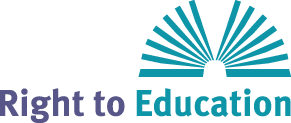Joint statement made by GI-ESCR and the Right to Education Initiative at the 44th session of the UN Human Rights Council in July 2020 welcoming the report of the UN Special Rapporteur on the right to education on the impact of the COVID-19 crisis on the right to education. The statement emphasised her call for States to prioritise the funding and delivery of free, quality, public education, and implement minimum standards to secure the privacy and data protection for learners and teachers.
The final report of outgoing UN Special Rapporteur on the right to education, Ms Koumbou Boly Barry, addressing the right to early childhood care and education (ECCE), highlights the wide ranging ‘developmental, educational, social, cultural and economic benefits’ of ECCE to children, their families and wider society, and urges states to recognise and enshrine ECCE rights from birth until primary school, significantly calling for a more specific legal instrument to be established to complement the protections already established in international human rights instruments.
This report reflects a milestone in the realisation of young children’s right to education, and thus paves the way for long-term change and improvement to education systems, entrenched inequalities, and cohesive social development.
We wish to offer our sincere thanks to the outgoing Special Rapporteur Koumbou Boly Barry and acknowledge her for giving precedence to the right to education of young children in her report, and also for the overall contribution towards the realisation of the right to education during her mandate.
This statement synthesises some of the key information contained in the outgoing Special Rapporteur's report, and acknowledges her contribution across the two terms of her mandate.
This written statement was submitted by GI-ESCR and RTE during the 53rd session of the Human Rights Council in Geneva. It was submitted in relation to the presentation of the report of the Special Rapporteur on the right to education: Securing the right to education: advances and critical challenges (A/HRC/53/27).
